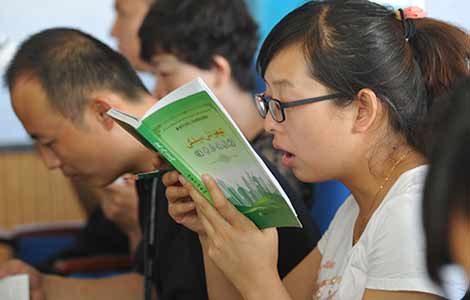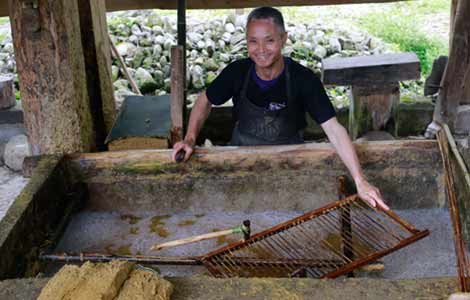Common sense can be a yardstick
Updated: 2013-08-01 09:02
By Zhu Yuan (China Daily)
|
||||||||

With only six years of primary school education, 70-year-old Chang Desheng, as Party secretary of a small village in East China's Jiangsu province, knew even in the early 1980s that agricultural production could never be abandoned however rich his village became and was also aware that polluting factories were not acceptable however profitable they might be.
His village, Jiangxiang, with per capita annual GDP of more than $20,000 in past decade, does not have to buy grain and vegetables and has all its sewage and solid waste treated before being discharged.
Traveling around the 3-square-kilometer village and witnessing with my own eyes the tidy two-story houses for every family, the zigzagging waterways with clean water and the green fields with birds of different kinds singing nearby, I couldn't help thinking how such an ordinary village Party secretary could have embraced sustainable development even in the 1980s when the country was still in the early stage of its economic reform and opening-up.
After I had talked with Chang, it dawned on me that doing everything according to common sense has been the secret of his success in leading his village on a sustainable path to prosperity.
I may be criticized for making a fuss about the importance of common sense, but it is not always easy to do things in accordance with common sense, particularly when it comes to the management of a business or administration of a locality.
Often it is not because the people in charge do not have any common sense, but because immediate interests or some other factors have got the better of them.
For example, any local leader should know how devastating pollution of any kind will be to the local environment, but still a number of local governments have chosen the revenues from polluting industries rather than a clean environment. That explains why most of the country's rivers are heavily polluted and even the rice produced in some parts of southern China has been contaminated by heavy metals.
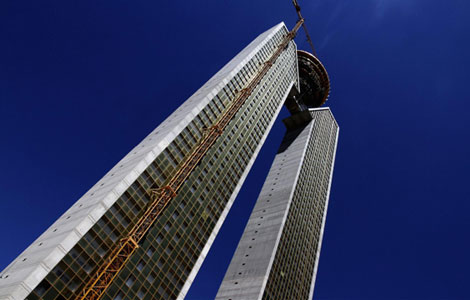
 Spanish skyscraper forgets elevator
Spanish skyscraper forgets elevator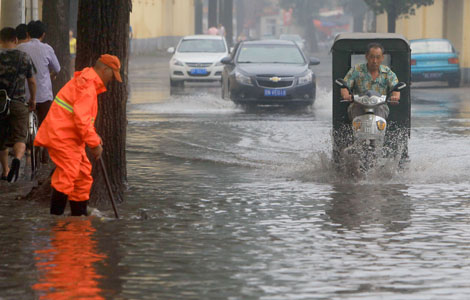
 Beijing rainstorm cancels flights, kills airport worker
Beijing rainstorm cancels flights, kills airport worker
 Highs and lows of marine rescue
Highs and lows of marine rescue
 Lin Dan wins Olympic final rematch over injured Lee
Lin Dan wins Olympic final rematch over injured Lee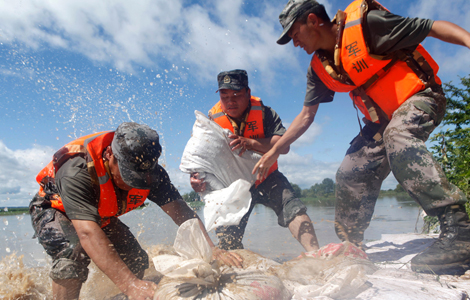
 Northeast China braces for major floods
Northeast China braces for major floods
 High-heeled, well heeled
High-heeled, well heeled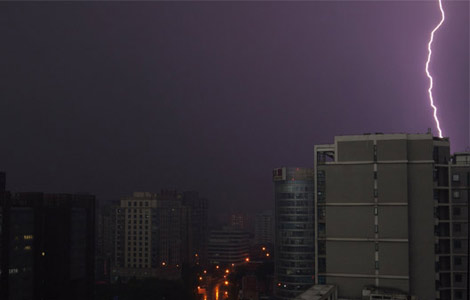
 Thunder storm hits Beijing, darkening the sky
Thunder storm hits Beijing, darkening the sky
 Fans stay away as worlds get off to sweaty start
Fans stay away as worlds get off to sweaty start
Most Viewed
Editor's Picks

|

|

|

|

|

|
Today's Top News
New green policy gives industries a big boost
Northeast China braces for major floods
Launches highlight India's ambitions
Chinese put on alert in Afghanistan
Questioning China's achievements
Go-between helped to cement deal
The only way now is up
Japan to carry out self-defense
US Weekly

|

|
